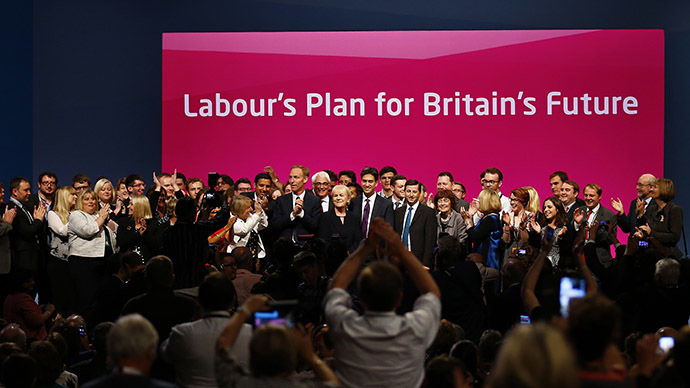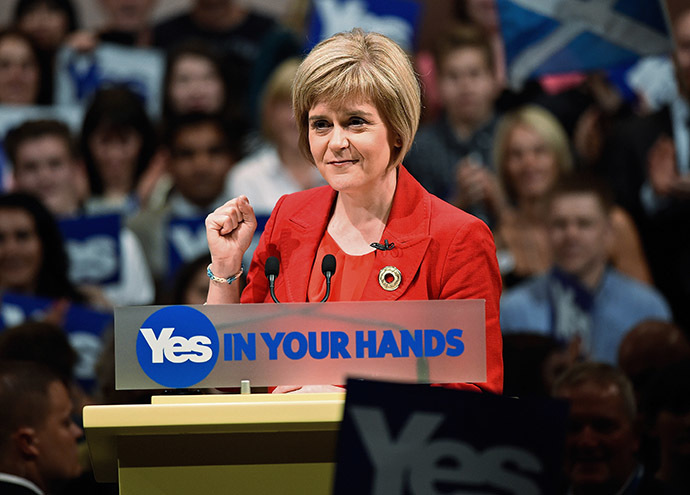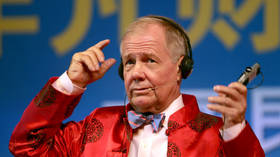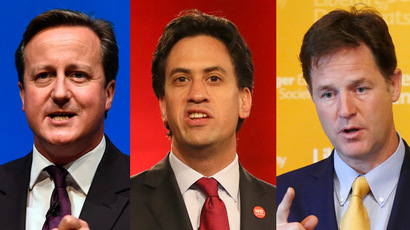Labour could be wiped out in Scotland as SNP support surges – polls

The Scottish Labour Party has admitted it could lose “up to 20” seats in the Scottish Parliament, following a surge in support for the Scottish National Party (SNP).
The statements follow the publication of two polls last week suggesting the SNP would dominate a general election if it were held tomorrow, with one poll by Ipsos Mori giving the party 52 percent – the highest share recorded in its history.
Labour currently holds 41 seats in the Scottish Parliament, although many have predicted the party will lose significant ground in next year’s general election.
The SNP is currently the largest party in Holyrood, controlling a total of 64 seats.
While the nationalists hold a mere six MPs in the House of Commons, the poll indicates that the SNP could gain a staggering 54 seats in a general election.
The polls came hours before Labour Party leader Ed Miliband was due to attend a gala dinner in Glasgow, where it was widely believed he would unofficially begin his electoral campaign.
UK political map after GE 2015 based on recent polls. Hung parliament with SNP holding key to power. #indyscot#the45pic.twitter.com/s7gdvKKLpu
— YesRoslin (@YesRoslin) November 2, 2014
Speaking to STV’s Scotland Tonight last week, Miliband claimed the polls showed a “snapshot” rather than a prediction of next year’s general election, and that the surge was likely to be temporary. “Let’s see where we are at the general election,” he said.
The Labour Party has faced a battering in recent weeks, particularly with the resignation of former Scottish Labour leader Johann Lamont, who described some of her colleagues as “dinosaurs.” Lamont accused the party leadership of treating Scottish Labour “like a branch office of London.”
Analysis from the Guardian also shows that the seats the Labour Party risks losing are mainly constituencies where support for independence in September was especially high.
The constituencies include Edinburgh East and Falkirk, both Labour strongholds, where nearly half of all residents voted ‘yes’ to independence.
Meanwhile, the Labour heartlands of Glasgow and North Lanarkshire saw the majority of residents back independence. Labour could now face punishment for its support for the union.
“There is a fundamental hostility to Labour in former Labour heartlands and we know how dreadful Ed Miliband’s trust ratings are,” director of pro-independence think-tank Common Weal, Robin Mcalpine, told the Guardian.

SNP deputy leader Nicola Sturgeon, who will succeed Alex Salmond as leader later in November, said the polls are proof that the Scottish independence referendum has “changed Scottish politics forever.”
“At next year’s general election, we have the power to send a shockwave through the Westminster establishment. By electing a strong team of SNP MPs, the people of Scotland can ensure that the Westminster parties are held to account on the panicked promises they made to us all in the days leading up to the referendum,” she said.
The statement comes as Labour MP Jim Murphy formally resigned as shadow international development secretary to run for the leadership of Scottish Labour.














